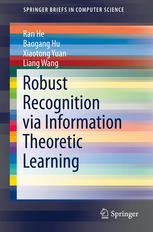

Most ebook files are in PDF format, so you can easily read them using various software such as Foxit Reader or directly on the Google Chrome browser.
Some ebook files are released by publishers in other formats such as .awz, .mobi, .epub, .fb2, etc. You may need to install specific software to read these formats on mobile/PC, such as Calibre.
Please read the tutorial at this link: https://ebookbell.com/faq
We offer FREE conversion to the popular formats you request; however, this may take some time. Therefore, right after payment, please email us, and we will try to provide the service as quickly as possible.
For some exceptional file formats or broken links (if any), please refrain from opening any disputes. Instead, email us first, and we will try to assist within a maximum of 6 hours.
EbookBell Team

0.0
0 reviewsThis Springer Brief represents a comprehensive review of information theoretic methods for robust recognition. A variety of information theoretic methods have been proffered in the past decade, in a large variety of computer vision applications; this work brings them together, attempts to impart the theory, optimization and usage of information entropy.
The authors resort to a new information theoretic concept, correntropy, as a robust measure and apply it to solve robust face recognition and object recognition problems. For computational efficiency, the brief introduces the additive and multiplicative forms of half-quadratic optimization to efficiently minimize entropy problems and a two-stage sparse presentation framework for large scale recognition problems. It also describes the strengths and deficiencies of different robust measures in solving robust recognition problems.